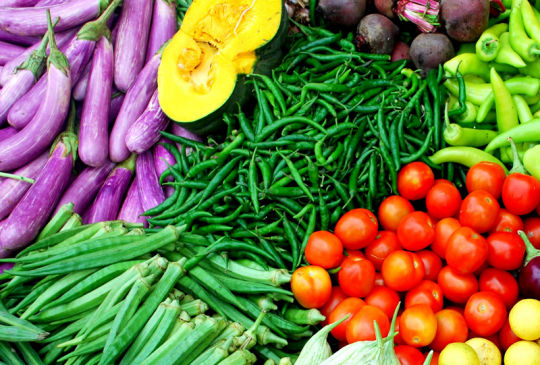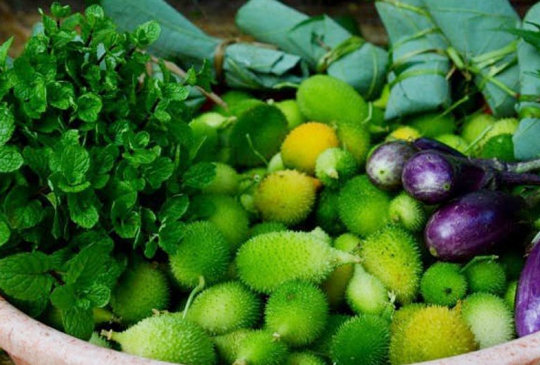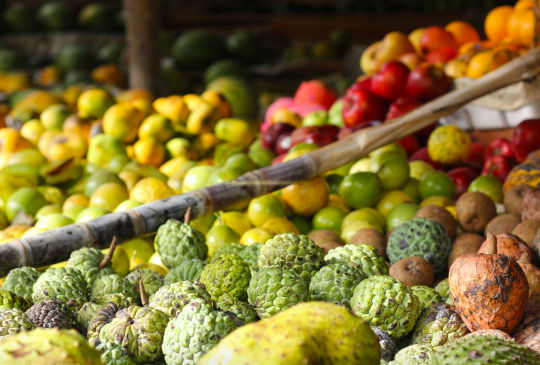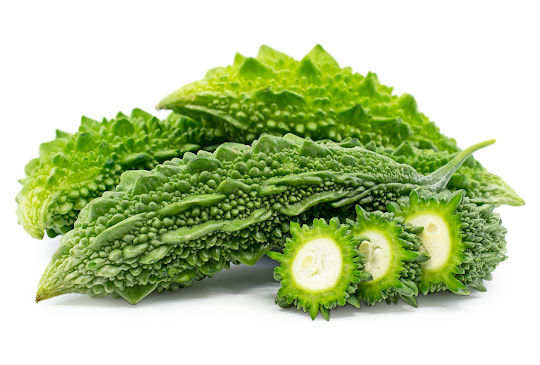Fresh Fruit and Vegetable Importers in Canada
The Canadian Star Line Shipping is one of the leading fresh fruit importers in Canada and also a suppliers & exporter from Canada to rest of the world. Apart from our mainstream business, we do wholesale and retail sale of fruits and vegetables.
Over three decades, the quality assured assortment of vegetables & fruits that we offer has helped us to establish a large customer base in different areas in Canada, especially around Ontario.
We offer Fresh Vegetables and Fresh Fruits like Pomegranate, Grapes, Mangoes, Coconut, Tomatoes, Onions, Green Chilies, Lemons and organic fresh vegetables. And we are happy to facilitate the delivery of uncommon food items that are hard to find.
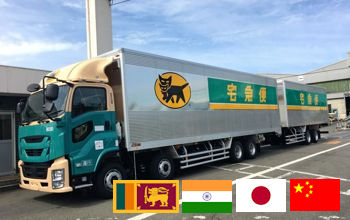
Logistics Ground in Asia Pacific
- Operating in all major countries and borders
- Extensive services including: linehaul, Pick Up and Delivery (PUD), home delivery, milkrun, cross-border, courier and rail
- Singapore to Shanghai cross-border service
- China to Europe railway service: Innovative service balancing speed and cost; faster than Oceanfreight, cheaper than Airfreight
- Linehaul China: 700 trucks a day, 6.25 million pallets moved yearly

Transportation across Europe
- Multi-sector and multi-mode capabilities
- Working with Pan-European players and niche specialists
- Central control and network monitoring through the Control Tower
- 50,000 tons managed a year
- 4,000 shipments a year
- 20 transport partners
- Groupage/LTL/FTL

Logistics Ground in North America
- Supports U.S. Domestic network through LTL/FTL services
- Over 250 scheduled linehaul segments per year
- Seven hubs and 20 stations
- 75 thousand miles a month
- 100 loads a month
To learn more about our ground transportation operations in North America and how we can support your business, please contact us
Our Canadian Community
Canadian Star Line Shipping is redefining the way premium fresh imported vegetables and fruits are being distributed in Canada. Our dedication to supplying top-of-the-line freshֲ products as well as our long line of strong partnerships and customers, have helped us guarantee a reliable service of the finest organic products which we are proud to present
Source of Our Fresh Produce – Sri Lanka
As a country blessed with a tropical climate and a geography that suit a variety of agricultural crops, Sri Lanka has been supplying a range of tropical fruit, nut, and vegetables to the world.
On top of Sri Lanka’s climatic advantage, the fertile soils and the conventional wisdom handed down from generation to generation, the established agricultural facilities, irrigation systems, and distributed rainfall patterns are quite conducive to the cultivation of such crops.
Produced by autonomous clusters of farmers, around eighty different varieties of fruit and vegetables are grown in Sri Lanka’s varied agro-climatic areas. They collectively produce more than 900,000 metric tons of fruit and vegetable annually and export both fresh and processed varieties to many destinations in the world. Improved techniques on crop cultivation especially under poly-tunnels, optimum input applications, pest and disease control, post-harvest management, quality packaging, and improved transportation methods are practiced to ensure the best quality. The government also encourages the private sector engagement in commercial cultivation for further expansion.
Frequently Asked Questions
Still open questions?
Wash your hands thoroughly before preparing any type of food and before eating. Use clean knives and cutting boards. When preparing fresh vegetables and fruits, cut away any damaged or bruised areas because bacteria that cause illness can thrive in those places. Bruises and mold are signs of spoilage. You can throw away the outer leaves of leafy vegetables, such as lettuce and cabbage.
Wash produce under running tap water and scrub with a brush when appropriate. Do not use soap.
Store fresh-cut items, such as salad or fruit, in the refrigerator for best quality and safety. Be sure that fresh fruits and vegetables are not stored under raw meat, which could drip on them and contaminate the produce with bacteria. Whole (uncut) fruits and vegetables, such as apples and bananas, can be stored at room temperature.
Yes, you can freeze cut-up fruits and vegetables; however, vegetables should be blanched (heat-treated) before freezing. The heating process inactivates enzymes, which can cause flavor or color changes during frozen storage.
Fruits usually need added ingredients (sugar, citric acid or lemon juice) to prevent browning and retain their quality.
Cross-contamination is the spread of bacteria from one food or surface to another. To avoid cross-contamination, keep cooked or ready-to-eat foods separate from raw products while shopping, preparing and storing food items.
Wash cutting boards, dishes and countertops with hot, soapy water after preparing each food item and before you go on to the next item. If possible, use one cutting board for fresh produce and a separate one for raw meat, poultry and seafood. When cutting boards become excessively worn or develop hard-to-clean grooves, you should replace them.
You benefit from our experience in delivering effective solutions to the complex global supply chains of some of the world’s biggest corporations.
You benefit from every innovation, whether it involves a simple extension to our Air and Ocean Freight products, whether it means a development in warehousing.
All of which explains why you’ll find the team of outstanding support at TransCargo ready to apply their passion for solutions in support of your business.

